Artificial intelligence is advancing rapidly, transforming industries and everyday life. AI research focuses on areas like machine learning, robotics, and automation, leading to innovations that enhance efficiency, decision-making, and problem-solving. These advancements are integrated into various sectors, including healthcare, finance, and transportation, making AI a fundamental part of modern technology.

1. AI Superior
At AI Superior, we specialize in artificial intelligence research and development, focusing on solving complex business challenges through advanced AI solutions. Our team of experienced data scientists and engineers conducts in-depth research in machine learning, deep learning, and data analytics to create innovative AI technologies. By leveraging extensive datasets and state-of-the-art algorithms, we develop applications that enhance operational efficiency, optimize decision-making, and drive business innovation.
Our expertise extends across various industries, where we apply AI to automate processes, improve predictive analytics, and enable intelligent decision support systems. Through continuous research and development, we help organizations harness the full potential of AI to stay ahead in an increasingly competitive landscape.
Key Highlights:
- Research and development in artificial intelligence and machine learning.
- Expertise in deep learning, predictive analytics, and data-driven decision-making.
- AI-driven process automation and optimization for various industries.
- Development of intelligent systems for enhanced business performance.
- Team of Ph.D.-level data scientists and software engineers.
Services:
- AI research and model development.
- Machine learning solutions for business intelligence.
- Deep learning applications for data analysis and automation.
- Custom AI development for industry-specific challenges.
- AI-driven optimization of business operations.
- Consulting on AI implementation and strategy.
- Research and development of next-generation AI technologies.
Contact Information:
- Website: aisuperior.com
- Contact Email: [email protected]
- LinkedIn: linkedin.com/company/ai-superior
- X: x.com/aisuperior
- Address: Robert-Bosch-Str.7, 64293 Darmstadt, Germany
- Phone Number: +49 6151 3943489

2. OpenAI
OpenAI is a leader in generative AI research, developing models like ChatGPT and DALL-E that transform industries from healthcare to creative arts. The company focuses on advancing artificial general intelligence (AGI) while prioritizing ethical guidelines and safety protocols to ensure responsible deployment.
OpenAI collaborates with global institutions to address challenges such as bias mitigation and AI alignment. Its open-source frameworks, like GPT-4o, enable developers to build applications for content generation, coding assistance, and data analysis.
Key Highlights:
- Pioneering large language models (LLMs) and multimodal AI.
- Commitment to AI safety and transparency.
- Partnerships with Microsoft for Azure cloud integration.
- Open-source tools for developers (e.g., Whisper, CLIP).
- Research hubs in San Francisco, London, and Tokyo.
Services:
- ChatGPT for conversational AI.
- API access for custom model integration.
- AI-driven content moderation tools.
- Collaborative research grants.
- Training programs for ethical AI development.
Contact Information:
- Website: www.openai.com
- LinkedIn: linkedin.com/company/openai
- X: x.com/openai
- Instagram: instagram.com/openai
- Email: [email protected]
![]()
3. Google DeepMind
Google DeepMind merges AI with scientific discovery, achieving breakthroughs like AlphaFold for protein structure prediction and AlphaStar for game theory. The company’s research spans reinforcement learning, robotics, and climate modeling, aiming to solve complex global challenges.
DeepMind integrates its innovations into Google products, enhancing search algorithms, YouTube recommendations, and Android OS optimization. Its ethical AI initiatives focus on transparency and societal impact, collaborating with institutions like the NHS for healthcare applications.
Key Highlights:
- AlphaFold revolutionizing biochemistry and drug discovery.
- Multitask Unified Model (MUM) for advanced search.
- Open-source tools (e.g., TensorFlow, JAX).
- AI ethics research and policy advocacy.
- Climate prediction models for sustainability.
Services:
- Vertex AI for enterprise ML solutions.
- AI-driven healthcare diagnostics.
- Real-time data analytics platforms.
- Custom AI model training.
- Cloud-based AI infrastructure.
Contact Information:
- Website: www.deepmind.google
- Instagram: instagram.com/googledeepmind
- LinkedIn: linkedin.com/company/googledeepmind
- YouTube: youtube.com/@google_deepmind
- Address: Amphitheatre Pkwy, Mountain View, California 94043, US

4. NVIDIA
NVIDIA drives AI infrastructure with its GPUs and CUDA platform, enabling high-performance computing for LLMs, autonomous vehicles, and robotics. The Blackwell architecture powers energy-efficient AI training, reducing costs for trillion-parameter models.
The company partners with OpenAI, Microsoft, and Tesla to optimize AI workflows. NVIDIA’s Omniverse platform supports digital twin simulations, while its Jetson series brings AI to edge devices for IoT and industrial automation.
Key Highlights:
- DGX Cloud for scalable AI supercomputing.
- AI-optimized hardware (H100, A100 GPUs).
- Omniverse for 3D simulation and collaboration.
- Autonomous vehicle platforms (DRIVE AGX).
- Open-source AI frameworks (RAPIDS, Triton).
Services:
- GPU-accelerated AI training.
- Edge AI solutions for IoT.
- AI-powered robotics development.
- Custom chip design services.
- Developer training and certification.
Contact Information:
- Website: www.nvidia.com
- Email: [email protected]
- Facebook: facebook.com/NVIDIA
- LinkedIn: linkedin.com/company/nvidia
- X: x.com/nvidia
- Instagram: instagram.com/nvidia
- Address: 2788 San Tomas Expressway, Santa Clara, CA 95051
- Phone: +1 (408) 486-2000

5. Microsoft AI
Microsoft integrates AI across its ecosystem, from Azure AI cloud services to Copilot in GitHub and Dynamics 365. The company’s investment in AI data centers supports scalable infrastructure for enterprises and startups.
Microsoft partners with OpenAI to enhance its models and offers tools like Azure Machine Learning for seamless deployment. Its Responsible AI Framework ensures ethical practices in healthcare, finance, and government applications.
Key Highlights:
- Azure AI for enterprise ML and analytics.
- GitHub Copilot for AI-assisted coding.
- Collaboration with OpenAI and Mistral AI.
- AI-driven cybersecurity solutions.
- Hybrid cloud AI integration.
Services:
- Custom LLM development.
- AI-powered business analytics.
- Fraud detection for financial services.
- AI training and certification programs.
- Sustainability-focused AI tools.
Contact Information:
- Website: azure.microsoft.com/ai
- X: x.com/azure
- LinkedIn: linkedin.com/company/microsoft-azure
- Address: One Microsoft Way, Redmond, WA 98052, USA
- Email: [email protected]
- Phone: +1 800 642 7676

6. Meta AI
Meta AI advances AI through open-source models like LLaMA and research in AR/VR integration. Its AI supercomputer supports metaverse development, while tools like Segment Anything Model (SAM) enhance image and video analysis.
The company emphasizes ethical AI governance, collaborating with universities to address bias and misinformation. Meta’s PyTorch framework remains a cornerstone for developers globally.
Key Highlights:
- LLaMA for accessible NLP applications.
- AI-driven content moderation tools.
- PyTorch for open-source ML development.
- Multimodal AI research (text, image, video).
- Focus on privacy-preserving AI.
Services:
- AI-powered ad targeting for businesses.
- Virtual assistant development tools.
- Social media analytics platforms.
- AR/VR integration frameworks.
- AI ethics training programs.
Contact Information
- Website: ai.meta.com
- Facebook: facebook.com/aiatmeta
- X: x.com/aiatmeta
- LinkedIn: linkedin.com/showcase/aiatmeta
- YouTube: youtube.com/@aiatmeta

7. IBM Watson
IBM Watson combines AI with quantum computing for enterprise solutions in healthcare, finance, and logistics. Its Granite models offer industry-specific tools, while Watsonx integrates data and AI workflows for scalable deployment.
The company collaborates with NASA and CERN on climate modeling and particle physics. IBM’s AI OpenScale ensures transparency, enabling businesses to audit AI decisions for fairness and compliance.
Key Highlights:
- Watsonx for unified data and AI platforms.
- Quantum-AI hybrid systems.
- AI-driven diagnostics in healthcare.
- Ethical AI frameworks (AI Fairness 360).
- Global research labs in Zurich and Tokyo.
Services:
- Predictive analytics for supply chains.
- AI-powered customer service automation.
- Fraud detection in banking.
- AI consulting and implementation.
- Quantum computing integration.
Contact Information:
- Website: ibm.com
- LinkedIn: linkedin.com/company/ibm
- X: x.com/ibm
- Instagram: instagram.com/ibm
- Address: 1 New Orchard Road, Armonk, New York, USA
- Phone: +1 800 426 4968
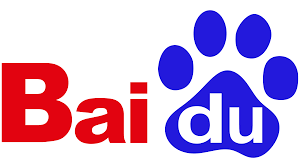
8. Baidu AI
Baidu is a research company in China, developing advanced large language models under the Ernie series and driving innovation in autonomous systems through the Apollo platform. The company’s AI Cloud services provide solutions for logistics, healthcare, and smart city applications, utilizing extensive data from Baidu Search to enhance machine learning capabilities.
Baidu collaborates with the Chinese government on AI policy and regulation, contributing to national AI development initiatives. The company also invests in edge computing to support AI-powered IoT applications. Its PaddlePaddle deep learning framework facilitates AI adoption by providing open-source tools for developers.
Key Highlights:
- Ernie 4.0 outperforming GPT-4 in benchmarks.
- Apollo for autonomous vehicles and smart traffic.
- AI Cloud for enterprise solutions.
- Focus on edge AI and 5G integration.
- Open-source tools (PaddlePaddle).
Services:
- AI-powered voice assistants (DuerOS).
- Autonomous vehicle software.
- Smart city infrastructure solutions.
- AI-driven logistics optimization.
- Developer training programs.
Contact Information:
- Website: ai.baidu.com
- LinkedIn: linkedin.com/company/baidu-inc
- YouTube: youtube.com/channel/UCm08TSsp87RRfn9SB_khuUQ
- X: x.com/Baidu_Inc
- Facebook: facebook.com/Baiduers
- Address: Baidu Campus, No. 10, Shangdi 10th Street, Haidian District, Beijing, 100085, China

9. Huawei Ascend
Huawei’s Ascend AI processors and MindSpore framework drive innovations in 5G, smart cities, and industrial automation. The company focuses on heterogeneous computing to bypass U.S. chip restrictions, collaborating with ModelBest for efficient AI training.
Ascend AI solutions power healthcare imaging, telecommunications, and robotics, emphasizing scalability and energy efficiency. Huawei’s R&D centers in Shenzhen and Paris advance open-source AI tools.
Key Highlights:
- Ascend 910B chips for AI training.
- MindSpore for cross-platform AI development.
- Edge AI solutions for IoT.
- Collaboration with global universities.
- GDPR-compliant data practices.
Services:
- AI-powered network optimization.
- Smart city infrastructure design.
- Healthcare diagnostics tools.
- Custom AI chip manufacturing.
- Cloud AI services.
Contact Information:
- Website: www.huawei.com/ascend
- LinkedIn: linkedin.com/company/huawei
- Facebook: facebook.com/Huawei
- X: x.com/Huawei
- Instagram: instagram.com/huawei
- YouTube: youtube.com/Huawei
- Address: Huawei Technologies Co., Ltd. Section H, Huawei Industrial Base
Bantian, Longgang District Shenzhen, Guangdong 518129 China - Phone: +86 755 28780808
- Email: [email protected]

10. Hugging Face
Hugging Face democratizes AI with its open-source platform, hosting over 500,000 models and datasets. The company’s Transformers library powers NLP applications, while Spaces enables collaborative AI development.
Hugging Face partners with Google, Microsoft, and AWS to enhance accessibility. Its AI ethics initiatives include dataset audits and bias mitigation tools, fostering responsible innovation.
Key Highlights:
- Transformers for NLP and computer vision.
- Model Hub for community contributions.
- AI ethics and transparency tools.
- Integration with major cloud providers.
- Multilingual AI solutions.
Services:
- Inference APIs for developers.
- Custom model fine-tuning.
- Dataset curation and auditing.
- Enterprise NLP solutions.
- AI education and workshops.
Contact Information:
- Website: huggingface.co
- LinkedIn: linkedin.com/company/huggingface
- X (Twitter): twitter.com/huggingface
- Address: 548 Market Street, San Francisco, CA 94104, USA
- Email: [email protected]
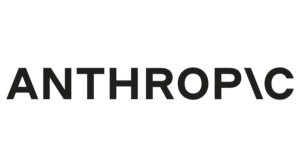
11. Anthropic
Anthropic prioritizes AI safety with Constitutional AI, ensuring models like Claude 3.5 align with human values. The company collaborates with Amazon and Google to integrate ethical AI into enterprise workflows.
Anthropic’s research focuses on AI alignment, robustness, and transparency. Its API provides developers with tools for content moderation, coding assistance, and customer support automation.
Key Highlights:
- Claude 3.5 for enterprise automation.
- Constitutional AI framework.
- Focus on AI alignment and safety.
- Collaboration with AWS and Google Cloud.
- Transparent model training practices.
Services:
- AI-driven content moderation.
- Custom LLM development.
- Ethical AI consulting.
- API access for developers.
- AI safety training programs.
Contact Information:
- Website: www.anthropic.com
- LinkedIn: linkedin.com/company/anthropic
- X (Twitter): twitter.com/AnthropicAI
- Address: 548 Market Street, San Francisco, CA 94104, USA
- Email: [email protected]
12. Mistral AI
Mistral AI develops open-source artificial intelligence models designed for efficiency and multilingual capabilities, focusing on European AI sovereignty. Its models, such as Mistral 7B and Mixtral 8x22B, are optimized for on-device processing, reducing dependency on large-scale cloud infrastructure while maintaining high performance. By prioritizing computational efficiency, the company enables businesses and researchers to deploy AI with lower operational costs.
Mistral AI collaborates with universities and government institutions to advance ethical AI practices, ensuring transparency and accountability in AI development. Its platform supports fine-tuning for domain-specific applications across various industries, including healthcare, legal, and education. The company provides adaptable AI solutions that can be integrated into enterprise workflows, enhancing automation and decision-making processes.
Key Highlights
- Development of open-source AI models like Mistral 7B and Mixtral 8x22B
- Emphasis on European AI sovereignty and reduced reliance on external AI providers
- Multilingual AI capabilities for global applications
- Optimized on-device processing to lower computational costs
- Partnerships with universities and governments for ethical AI development
Services
- Fine-tuning AI models for industry-specific applications
- AI solutions for healthcare, legal, and education sectors
- On-device AI deployment for efficiency and privacy
- Ethical AI consulting for responsible AI adoption
- Open-source AI model development to support research and enterprise use
Contact Information:
- Website: mistral.ai
- LinkedIn: linkedin.com/company/mistralai
- Address: 15 Rue des Halles Paris, 75001 France
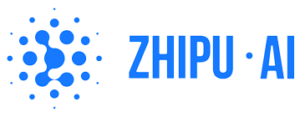
13. Zhipu AI
Zhipu AI, a spin-off from Tsinghua University, specializes in multimodal artificial intelligence models, including GLM-4V, designed for video analysis, synthetic data generation, and other advanced AI applications. The company collaborates with major Chinese technology firms to enhance AI-driven solutions for smart cities and autonomous systems. Its research focuses on scalable AI architectures that integrate seamlessly into real-world infrastructure, supporting automation in industries such as transportation, urban planning, and security.
Despite U.S. sanctions, Zhipu AI continues to advance research in artificial general intelligence (AGI), working on enterprise-level AI solutions that prioritize efficiency and adaptability. The company’s planned IPO is aimed at expanding global research and development efforts, strengthening its position in AI innovation. By focusing on scalable AI applications, Zhipu AI provides enterprises with flexible, high-performance AI models that improve decision-making and automation.
Key Highlights:
- Development of multimodal AI models like GLM-4V for video analysis
- Focus on synthetic data generation for AI training and simulation
- Collaboration with Chinese tech firms for smart city and autonomous system applications
- Leading AGI research with scalable enterprise AI solutions
- Planned IPO to expand global research and development
Services:
- Multimodal AI solutions for video, image, and text processing
- AI-powered automation for smart cities and infrastructure
- Synthetic data generation for AI model training
- Enterprise AI scalability consulting for large-scale deployment
- AGI research and development for future AI applications
Contact Information:
- Website: www.zhipuai.cn
- Address: Haidian District, Beijing, China
- Email: [email protected]
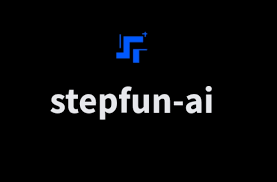
14. Stepfun
Stepfun, backed by Tencent, focuses on AGI and multimodal AI with models like Step-2 (1T parameters). The company’s API enables developers to integrate text, image, and audio processing into applications.
Stepfun collaborates with Shanghai’s AI research hubs to advance robotics and autonomous systems. Its scalable cloud solutions cater to enterprises in gaming, finance, and healthcare.
Key Highlights:
- Multimodal API for developers.
- AGI research and robotics integration.
- Government funding for R&D.
- High-performance cloud AI.
- Open-source compute frameworks.
Services:
- API access for Step models.
- AI-driven content creation tools.
- Custom enterprise solutions.
- Robotics automation platforms.
- AI research partnerships.
Contact Information:
- Website: www.stepfun.com
- LinkedIn: linkedin.com/company/stepfun
- Address: 1st-3rd Floor, No. 24, Lane 315, Fenggu Road, Xuhui District, Shanghai
- Email: [email protected]
![]()
15. Cohere
Cohere specializes in enterprise-grade natural language processing (NLP), offering API-accessible language models for text generation, classification, and semantic search. Its models prioritize data privacy, enabling businesses to deploy AI without exposing sensitive information. Cohere’s tools cater to industries like legal tech, customer support, and e-commerce, enhancing workflows through AI-driven automation.
The company focuses on developer-friendly integrations, supporting multilingual applications and custom model fine-tuning. Cohere emphasizes ethical AI, avoiding biases in training data and promoting transparent model behavior.
Key Highlights:
- Enterprise-focused NLP APIs.
- Privacy-centric model training.
- Multilingual text processing.
- Customizable AI workflows.
- Bias mitigation strategies.
Services:
- Text generation and summarization APIs.
- Semantic search and document clustering.
- Sentiment and intent analysis tools.
- Custom model fine-tuning.
- Data anonymization solutions.
Contact Information:
- Website: www.cohere.ai
- Email: [email protected]
- X: x.com/cohere
- LinkedIn: linkedin.com/company/cohere-ai/mycompany

16. Databricks
Databricks provides a unified analytics platform for AI and data science, built on Apache Spark. Its Lakehouse architecture merges data engineering and ML workflows, enabling seamless model training and deployment. MLflow, an open-source tool, streamlines experiment tracking and model governance.
The platform supports collaborative environments for teams and integrates with major cloud providers. Databricks emphasizes scalability, offering solutions for industries like healthcare (genomics analysis) and finance (fraud detection).
Key Highlights:
- Lakehouse architecture for data/ML unification.
- MLflow for MLOps lifecycle management.
- Delta Lake for reliable data pipelines.
- AutoML capabilities.
- Industry-specific AI solutions.
Services:
- Collaborative data science workspaces.
- Model serving and monitoring.
- Real-time analytics with Structured Streaming.
- Integration with TensorFlow/PyTorch.
- Security and compliance frameworks.
Contact Information:
- Website: databricks.com
- LinkedIn: linkedin.com/company/databricks
- X: x.com/databricks
- Email: [email protected]
- Address: 160 Spear St, San Francisco, CA 94105, USA
- Phone: +1 866-330-0121

17. DataRobot
DataRobot automates end-to-end machine learning workflows, from data prep to model deployment. Its AutoML platform caters to industries like banking and retail, offering tools for time-series forecasting and anomaly detection. The platform emphasizes interpretability, with feature impact analysis and compliance reporting.
DataRobot’s AI Cloud supports hybrid deployments, enabling enterprises to scale AI initiatives while maintaining governance. Partnerships with cloud providers ensure seamless integration with existing infrastructure.
Key Highlights:
- Comprehensive AutoML platform.
- Time-series forecasting specialization.
- Model interpretability and governance.
- Hybrid-cloud deployment options.
- Prebuilt industry templates.
Services:
- Automated data preprocessing.
- Model monitoring and retraining.
- AI applications for supply chain optimization.
- Fraud detection and risk analytics.
- Collaborative AI project management.
Contact Information:
- Website: datarobot.com
- LinkedIn: linkedin.com/company/datarobot
- X: x.com/DataRobot
- Address: 225 Franklin St, Boston, MA 02110, USA
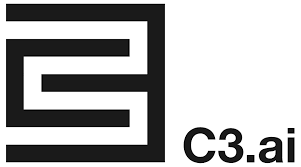
18. C3.ai
C3.ai delivers enterprise AI applications for sectors like energy, manufacturing, and government. Its platform enables predictive maintenance, fraud detection, and supply chain optimization. C3.ai’s prebuilt AI models reduce deployment time, while its no-code tools democratize access for non-technical users.
The company partners with AWS and Google Cloud, offering scalable solutions for large datasets. C3.ai’s focus on ESG (environmental, social, governance) includes AI for carbon emission tracking.
Key Highlights:
- Industry-specific AI applications.
- Prebuilt models for rapid deployment.
- No-code AI development tools.
- ESG and sustainability solutions.
- Cloud-agnostic platform.
Services:
- Predictive maintenance for IoT devices.
- Fraud detection in financial services.
- Energy grid optimization tools.
- AI for CRM and customer analytics.
- Custom enterprise AI integration.
Contact Information:
- Website: c3.ai
- Email: [email protected]
- LinkedIn: linkedin.com/company/c3-ai
- X: x.com/C3_AI
- Address: 1300 Seaport Blvd, Redwood City, CA 94063, United States
- Phone: +1 650-503-2200
Conclusion
AI research continues to push technological boundaries, leading to improvements in automation, data analysis, and human interaction. The development of advanced models and algorithms helps optimize industries, making processes smarter and more efficient. As AI evolves, ongoing research will drive new breakthroughs, further integrating artificial intelligence into everyday applications and shaping the future of work, communication, and innovation.
FAQ
What is the main goal of AI research?
AI research aims to develop intelligent systems that can learn, reason, and perform tasks traditionally requiring human intelligence.
What areas does AI research focus on?
Key areas include machine learning, natural language processing, robotics, computer vision, and autonomous systems.
How does AI research impact industries?
AI improves efficiency, automates processes, and enhances decision-making in sectors like healthcare, finance, transportation, and manufacturing.
What are the challenges in AI research?
Challenges include ethical concerns, data privacy, bias in algorithms, and the need for vast computational resources.
How is AI research improving automation?
AI enables smarter automation in industries by optimizing workflows, reducing human effort, and improving accuracy in repetitive tasks.
What role does AI research play in healthcare?
AI helps with medical imaging, drug discovery, patient monitoring, and personalized treatment plans, improving healthcare efficiency and outcomes.
How will AI research shape the future?
Ongoing advancements will lead to more sophisticated AI applications, enhancing human-AI collaboration and transforming how businesses and societies operate.
